In the context of this week’s Torah focus on the life of Sarah and the example that she and Rivkah set for all righteous woman after them, the question arises about modesty and dress for all godly woman who desire to follow in the footsteps of our Matriarchs of blessed memory. In Bereshit (Genesis) 24:65 we get our first glimpse of a woman wearing a headcovering when Rivkah (Rebecca) says to Avraham’s servant Eliezer, “Who is that man walking through the fields to meet us?” (looking out at Yitzchak (Isaac) for the first time) And he replied, “It is my master.” So she took her headcovering (her tzaif צָּעִיף scarf) and covered herself.” (וַתִּקַּח הַצָּעִיף, וַתִּתְכָּס)
The Shulchan Aruch (the Book of Jewish law by Rabbi Joseph Karo in 1563) says: “It is forbidden to mention Hashem’s Name or to enter a shul while one’s hair is uncovered” (91,3). Interestlly, this halachah law is based on the pre-established Jewish laws and the understanding of why passed down through the Millennia and does not differentiate between men and women, implying that this applies to both in different ways, for just as a woman is under the covering of a man, a man is to remember that he is under the authority and covering of God. This is another reason why men wear a kippah and women cover their hair for tefillah (prayer). Thus, mandatory headcovers for women is a topic that has been discussed throughout the history of Judaism. Some rabbis believe hair covering is an absolute obligation originating from Moses at Sinai, while others say it is a standard of modesty defined by the Jewish community since then. The Yiddish word tichel or Hebrew word mitpachat means head scarf and is still seen in Jewish communities to this day.
The beautiful things is that in the Bible a covering represents authority, power, responsibility, as well as a certain spiritual covering. A “spiritual mantle” or covering symbolically represents the Ruach HaKodesh (Holy Spirit) setting a person (or persons) apart for a particular purpose. And we know from the Bible that God has created a woman’s hair to be her glory and that another aspect or respecting the way God created the woman is by her maintaining her long hair to embrace the feminine essence with which the Creator has blessed her and thus many women in seeking to be set apart for Hashem and their husbands have covered their hair for thousands of years so as to not draw unwarranted male attention from others. Women are anointed by God as the “helper.” Eve was created for the sake of Adam because Adam needed help from someone who, like him, also represented God on earth. Because of woman’s anointing as helper, she carries a symbol of authority — her hair, and in recognition that she is under the Godly covering and authority of her Father or Husband, Godly woman choose to reserve the beauty of their hair for in their homes where they have their holy purpose. If a woman was to go out and lose her God-given covering of authority, it was the same thing as being “shaved.” (1 Corinthians 11:6)
In Judaism there is a code of modesty known as “tzniut”, which requires married women to cover their hair, and in ancient times appearing in public with loose hair was even included as one of the sufficient grounds for divorce according to Jewish rule in Israel as it was considered provocative in drawing unnecessary male attention to oneself and according to the Mishnah in Ketuboth (7:6), it is still highly advised as many Jewish women used to wear it! Like regular head scarves, tichel headcovers are available in styles to suit all occasions.

Today, the decision to cover one’s hair is based on a combination of law and custom as well personal choice in different communities in the diaspora, but no matter what your reason, it is a beautiful way to display modesty and Godliness!
Key Points…
So four key Biblical takeaways for all woman from the example of our righteous Matriarchs as well as the instruction given for all Godly woman, 1. Modesty 2. Long-hair, 3. The beauty and purpose of wearing a Head-scarf when alone in public or when in prayer, and 4. Recognition and respect of who’s Godly authority and covering you are under… Father, Husband, (or Spiritual Teacher if orphaned, widowed, etc.)
We hope this teaching blesses you in your spiritual understanding and growth! As we are solely supported by your Tzedakah charity, please consider supporting this ministry for the continued spread of Truth by giving a love offering here.
Also if you have a need for prayer, please write us and let us know how to pray for you and we feel privileged to be intercessors in prayer for all our worldwide family!
Don’t forget to…
– GO to our YouTube channel and…
– LIKE the videos
– SUBSCRIBE to our channel
– SHARE our YouTube channel
– FOLLOW us on Instagram
– FIND us on Facebook, as well as…
– POST this website: https://www.calledoutbelievers.org with your friends on Facebook!
Study by Rabbi Isaac. © Assembly of Called-Out Believers.
Website: CalledOutBelievers.org. Use by Permission



0 Comments